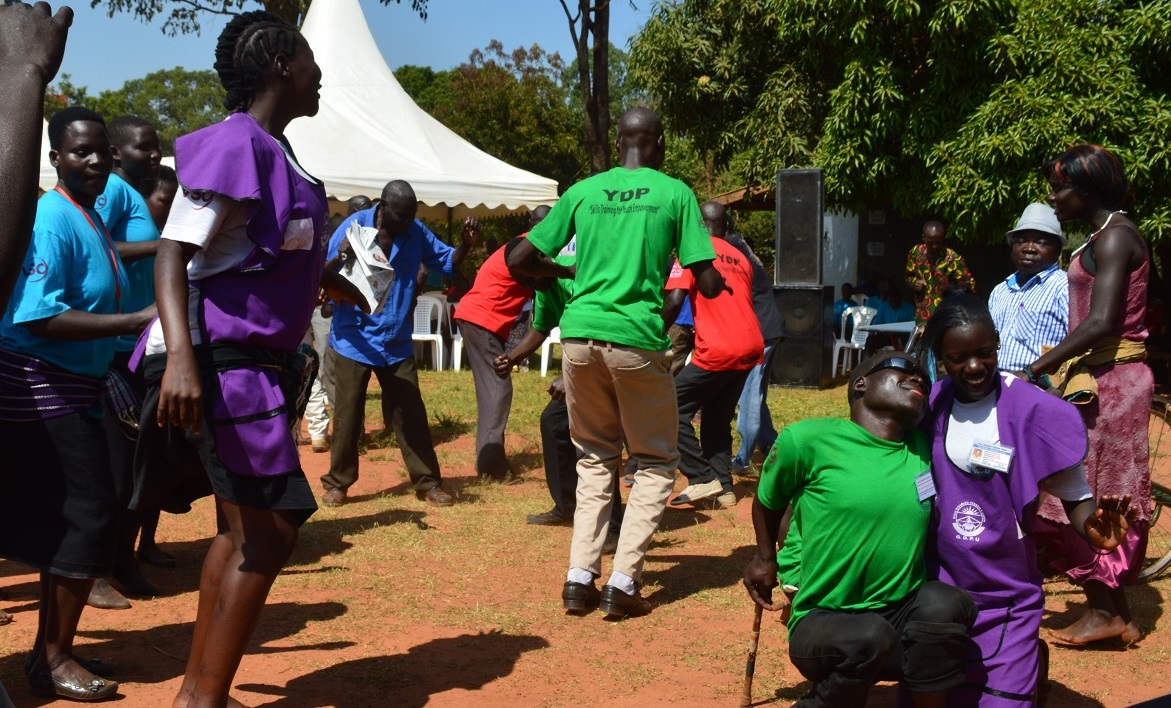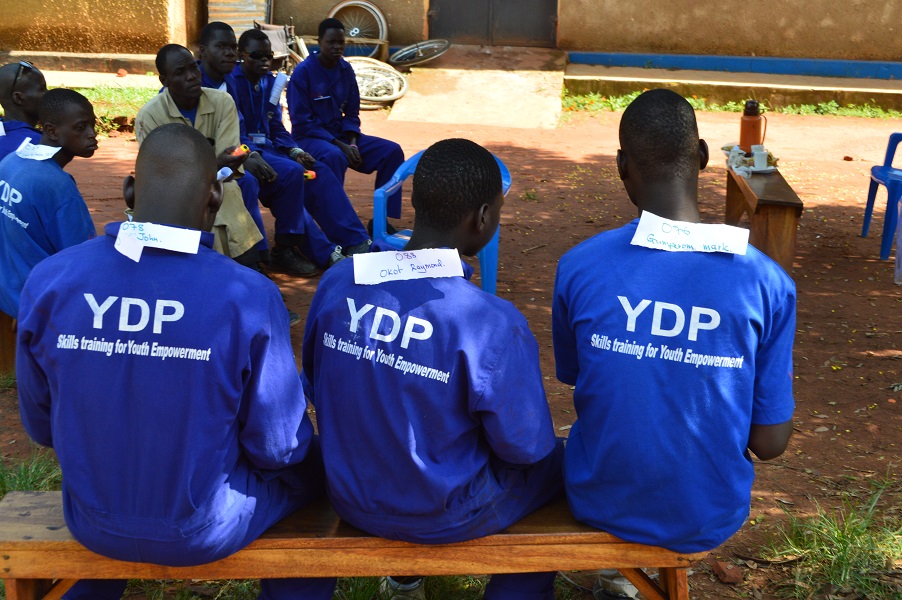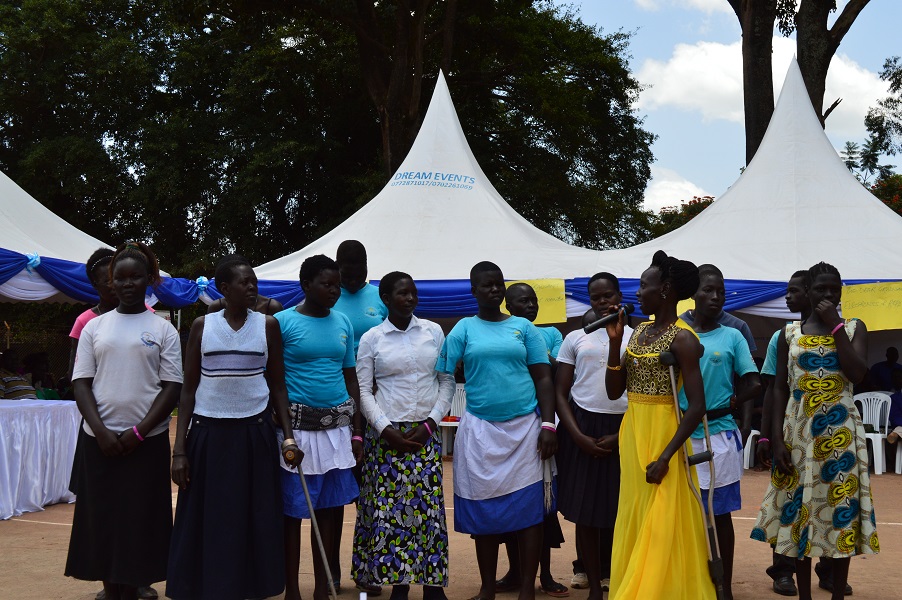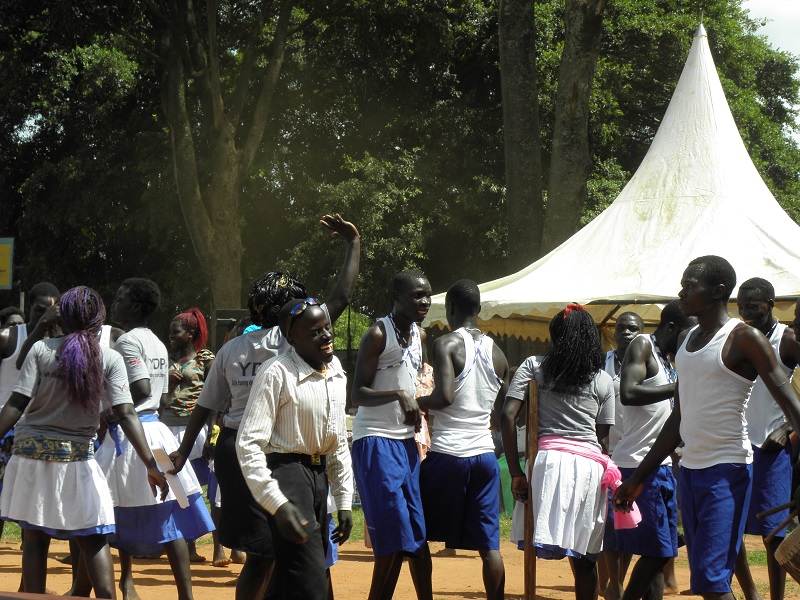“A Dignified Society For All”

Aims
The aim of the Youth Development Programme was to increase the economic opportunities and positive social engagement of 15,400 youth aged between 14-35 years in Karamoja, Teso, Lango, Acholi and West Nile between 2013 -2016. The Programme provided six months of vocational training and support followed by six months post training support to ensure that the youth found employment or set up businesses.

The YDP programme aimed for an equal gender mix of students and that 6 % of the students should be with disability. The recruitment of students with disability was low in the first cohort of the project. Therefore, specific efforts were taken to promote courses to those with disability and Gulu Disabled Persons Union was brought on as a training provider, providing courses for those with disability in the first cohort and a mixed disabled, non-disabled for the second cohort.
989 students with disability were provided with vocational training and post training support across the programme, 211 received training and support from Gulu Disabled Persons Union in Gulu.
Post Training Support
The YDP post training programme supported students to form business groups. Seed funding was available for each group, providing resources for the capital costs of setting up their business. The groups were required to prepare a business plan, open a bank account and to compete with other students to secure the funds. The materials were procured by the training establishment. A laborious process, but it did mean that those who were successful in securing the funding had shown initiative and commitment. Fifteen groups were set up from students at GDPU and received seed funding from the YDP.

Outcomes:
The outcomes of the programme for those with disability were positive and in some cases exceeded the outcomes for those students without disability. The measures used were:
Productively engaged: More youth with disability were productively engaged (84.3%), in full time employment (18.4%) and self-employed (54.0%) than youth without disability (80.5%, 10.3% and 47.2% respectively). This is a strong indicator that the YDP model removed barriers to employment and self-employment for disabled youth.
Income: At the start of the programme only 28% (22% female; 31% male) respondents were earning some form of income compared to 95% (95% female, 96% male, 100% youth with disability) at time of the final assessment. 81% (80% female; 83% male) of respondents said they were earning an income from a source related to the course they trained in.
Livelihood: The final tracer report showed that 86% of YDP students said their standard of living had improved. 88% of respondents could meet their basis needs and 80% could meet basic needs of dependents; with little differences between gender and disability. Over 75% of respondents attributed improvements in the different aspects of their livelihoods to the YDP program. 72% (69% female, 75% male, 72% youth with disability) of respondents had managed to save some of their income and 58% (47% female; 68% male; 59% youth with disability) had bought at least one asset.
The findings show that the outcomes of the YDP programme were positive and that for students with disability, the outcomes exceeded those of the general student groups. Strong evidence of the benefits of this programme for those with disability and their determination to gain from the experience is shown.

YDP and ‘Enhancing the Capacity at Gulu Disabled Persons Union’ (ETC at GDPU)
Whilst the YDP programme provided good outcomes for the majority of participants it was short lived; there is a danger that for many participants the outcomes will not be sustainable. There is a danger that the YDP will become one of a long line of short lived programmes, with no sustainable benefits for the people who participated.
Small businesses struggle during their first few years in operation, an average of 80 % will fail in the first two years. Continued additional support would increase the chances of success of the groups and improve the livelihoods of group members and their dependants.
Therefore this project (ETC at GDPU) is presented as a means of making the benefits of the YDP longer lasting with a smaller focused group.
